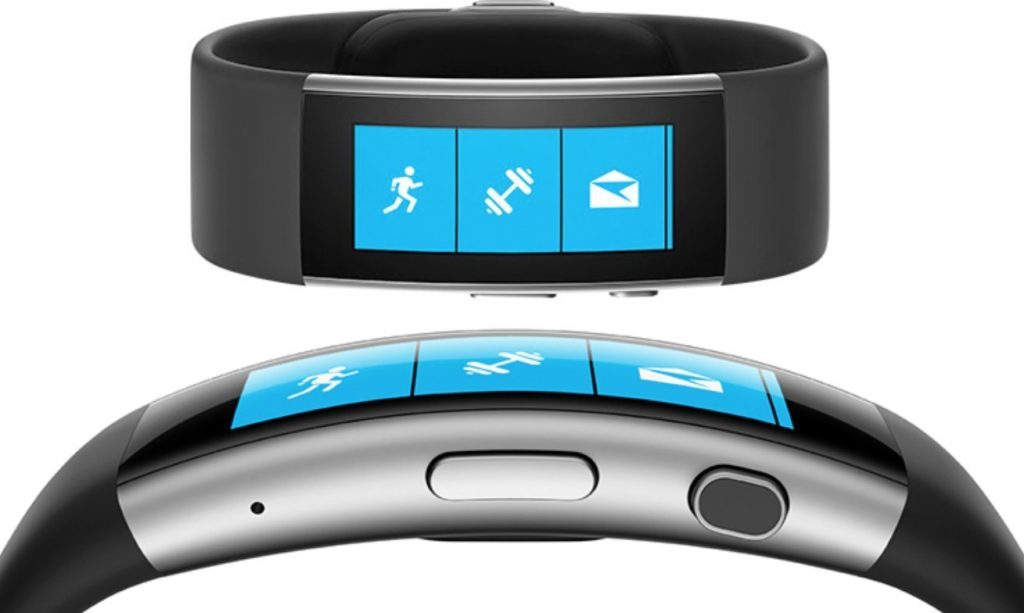Microsoft Band & the Future of Healthcare

Recently, on October 6, I had the insane opportunity to attend the Microsoft Media Briefing and Launch Party in NYC for their new Windows 10 Devices, including the Surface Pro 4 (I know!) and the Surface Book (I know!). Although I’ve spent hours, days, and weeks now gushing over the new Surfaces (naturally), something else that caught my attention was the new Microsoft Band. Check out this video to get yourself jazzed:
[embedyt] https://www.youtube.com/watch?v=GfWBSRibuVY[/embedyt]
While the Band is, of course, great for snowboarders, battle ropers (whatever that is!), rock climbers, golfers, sky divers, and soccer players, I see a lot of potential here for improving healthcare. Let’s start by listing the capabilities of the Band:
- Continuous optical heart rate monitor
- Sleep quality tracking
- Calories burned tracking
- Pedometer
- Barometer
- GPS
- UV monitor
- Dictation with Cortona
- Water resistant
- Receive calendar notifications
- Estimates VO2 max
- Galvanic skin response
With these features, the Band already has a handful of healthcare use-cases. Specifically, I envision that the Band could help obesity-related chronic conditions, sleep disorders, COPD, skin cancer, and general medication adherence.
Chronic Conditions
Chronic diseases are the leading causes of death and disability in the United States (U.S.). Appropriate weight loss can mitigate the negative effects of chronic conditions such as type 2 diabetes, hypertension, and hypercholesterolemia. Using the pedometer and calories burned tracking feature, I imagine patients engaging more actively in their weight loss treatment plan. By integrating with apps such as Lose It and MyFitnessPal, the Band empowers patients to take control of their wellness. Simple, but impactful.
Sleep Disorders
Up to 70 million U.S. adults suffer from sleep disorders resulting in $50 billion of lost productivity each year. Sleep disorders not only increase stress on a person’s heart, but they also increase insulin resistance and risk of developing diabetes. The Microsoft Band tracks the length and quality of sleep using heart rate and movement data. The Microsoft Health app then visualizes this data for you in graphs and provides unique statistics such as “efficiency” (time spent sleeping divided by total time) and “sleep restoration” (how recovered your mind and body should be). I imagine patients using this information to trial new sleep hygiene techniques or track the effectiveness of new sleep medications.
COPD
Chronic obstructive pulmonary disease (COPD) is a #3 cause of death in the U.S. About 12 million Americans suffer from COPD and another 12 million are likely undiagnosed. While there is no cure, pulmonary rehabilitation helps patients with COPD build their physical fitness and improve their breathing. Uniquely, the new Band measures V02 max. V02 max is the maximum volume of oxygen used during exercise, and it is a key indicator of cardiovascular fitness. In the past, measuring V02 max has been difficult, requiring the patient to be in a laboratory wearing a face mask. Now, patients can monitor their aerobic capacity at home and track their pulmonary rehabilitation progress in real time! So exciting!
Skin Cancer
What is the most common type of cancer? Skin cancer! More than 3.5 million skin cancers are diagnosed every year in the U.S., which is more than all other cancers combined. Yikes! And, what causes skin cancer? Mostly, it’s the UVA and UVB rays produced by the sun. Well, good news! The new Band includes a UV Tile that consistently monitors your level of UV exposure. The sensor will alert you if it detects a high amount of UV rays, and, of course, you will put on another layer of sunscreen or head inside for a break. I also think this could be a good tool to educate children about the dangers of the sun; not only does your mom say you need to wear sunscreen, but your smart watch does too!
Medication Adherence
Of 3.8 billion prescriptions written every year, 50% are taken incorrectly or not at all. Medication nonadherence alone leads to up to 69% of drug-related adverse events and costs between $100 and $289 billion annually in the U.S. Frankly, this doesn’t surprise me. I have sat with countless patients and helped them put reminders on their phone to take the medication I prescribed. I’ve also been prescribed medication, and I somehow forgot to take it all together! Because the new Band syncs with your calendar, I envision patients using it for medication reminders. I know I will…
Dr. DeCapua’s Vision for the Band of the Future
One of my favorite moments in cinematic history (don’t judge!):
Marty McFly: Hey, Doc, we better back up. We don’t have enough road to get up to 88.
Dr. Emmett Brown: Roads? Where we’re going, we don’t need roads.
And, this is how we need to approach the future of medicine. We need to envision a future unrestrained by the present. The problems that plague our system now cannot be solved with the same way of thinking that created them…
Here are the features I would like to see in the Band of the future:
- Pulse oximeter (I think the necessary ultra bright light would drain the battery… but where there is a will, Microsoft will find a way!)
- Respiratory rate
- Blood pressure
- Body temperature
- Subjective measures of pain and distress (The so-called 5th & 6th vital signs)
- Subjective measures of mood and energy (This would be great for all my fellow psychiatric providers. Maybe something as simple as Lume?)
- Gamification of wellness that uses health behavior change models and positive reinforcement (Maybe something like SuperBetter or dacadoo?)
- Emergency notifications (ability to send an alert to 911 or a family member at the push of a button)
- Specific medication adherence tracking (Check out my post “5 Free Medication Reminder Apps“)
- Women’s health features (menstruation, fertility, and pregnancy tracking)
- Tobacco cessation program (something like quitSTART)
- Breathalyzer (65% of all fatal single car crashes are alcohol related… maybe something like BACtrack)
- Blood glucose (Dreaming big here, but if Google can do it with contact lenses and iHealth can do it through a headphone jack…)
- Behavioral nudges (water consumption, movement, sleep)
Any other ideas? Comment below and let me know your thoughts. Anyone planning on getting the new Microsoft Band? I still have the original Fitbit Flex from way back in 2013. The Band’s constant heart rate monitoring is pretty tempting though… might be adding this to my holiday wish list!
Share on Facebook Share on Twitter Share on Pinterest
0 Comments on "Microsoft Band & the Future of Healthcare"